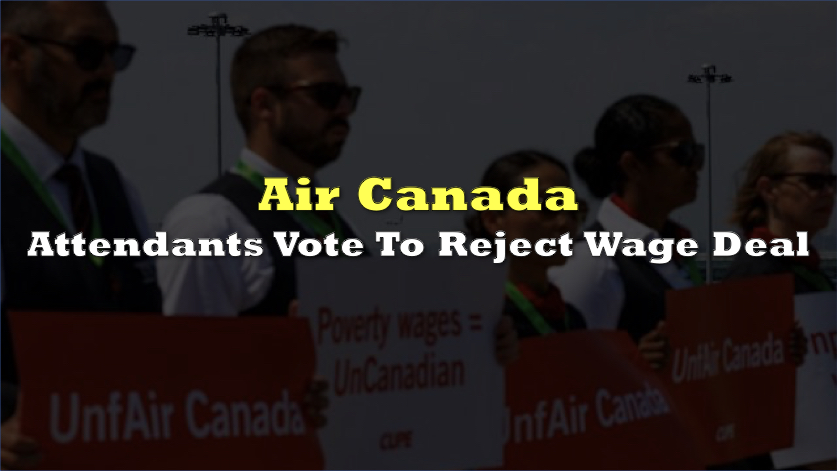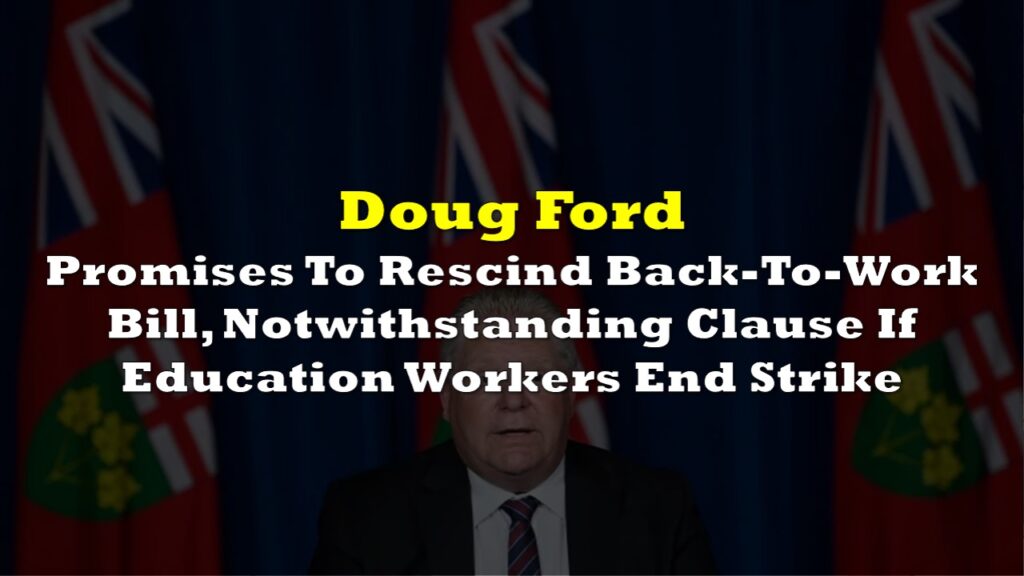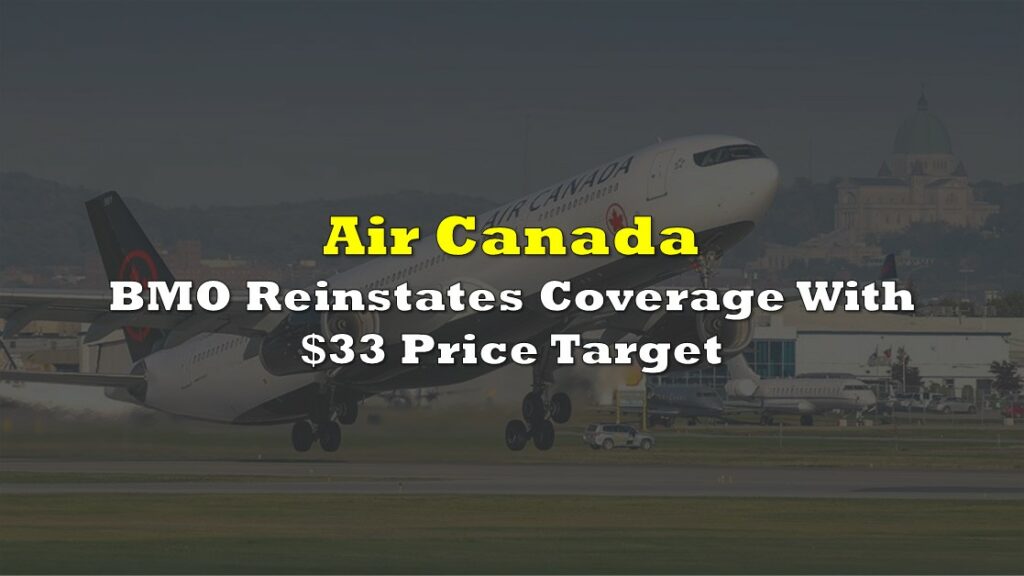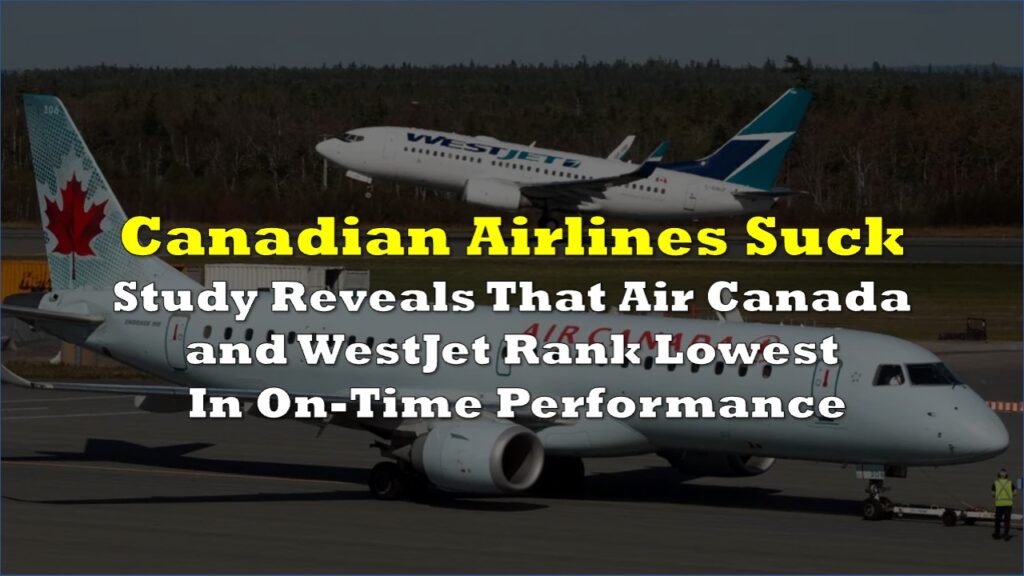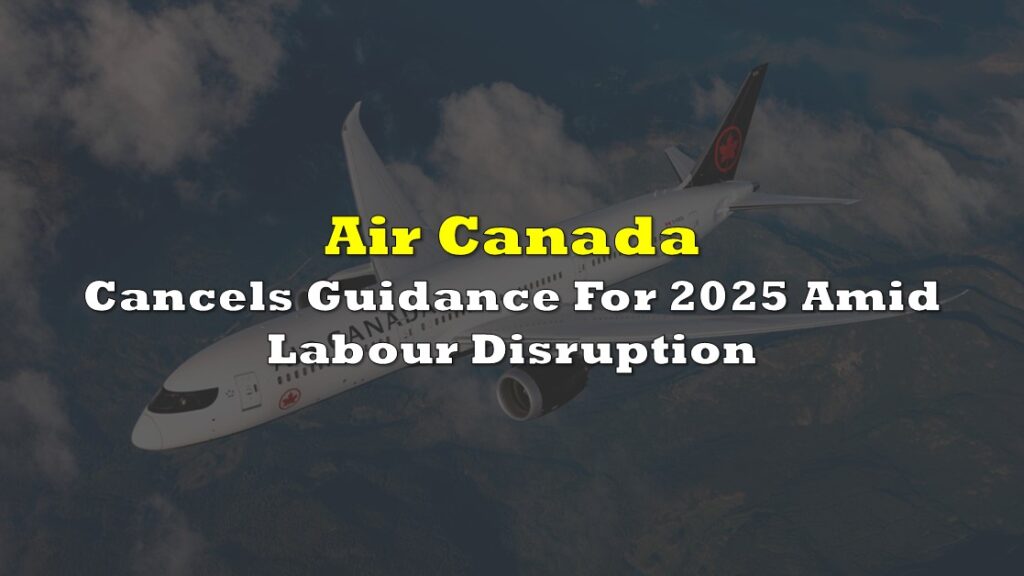Air Canada flight attendants voted 99.1% to reject the airline’s wage offer, sending the pay portion of August’s tentative deal to mediation—and then arbitration if required.
CUPE said 99.4% of members participated in the ratification vote covering more than 10,000 flight attendants at Air Canada and Air Canada Rouge. The union added that most non-wage terms of the tentative agreement would still form part of a new collective agreement, with wages carved out for third-party resolution.
“Air Canada and CUPE contemplated this potential outcome and mutually agreed that if the tentative agreement was not ratified, the wage portion would be referred to mediation and, if no agreement was reached at that stage, to arbitration,” wrote Air Canada in a statement. “The parties also agreed that no labour disruption could be initiated, and therefore there will be no strike or lockout, and flights will continue to operate.”
The carrier added it is “fully committed to the mediation and arbitration process.”
Details of the rejected wage schedule include year-one increases of 12% for Rouge flight attendants and mainline attendants with less than 5 years of service, and 8% for mainline attendants with more than 6 years. This is followed by annual increases of 3.0%, 2.5%, and 2.75% over the remaining three years of a four-year term. The tentative deal also introduced a modernized pay structure for ground time.
CUPE argued the offer left attendants below the federal minimum wage of $17.75/hour ($2,840/month on a 40-hour week), citing monthly figures of $2,219 for a full-time Rouge attendant and $2,522 for a full-time mainline attendant. The union framed the wage dispute within a broader fight over recognizing flight attendants’ safety role and ending unpaid work, noting partial ground-duty pay gains in this round.
“It is impossible to ignore the corrosive role the federal government played in these negotiations,” CUPE said, alleging Ottawa “kept their thumb on the scale” and “gave Air Canada the leverage they needed to suppress flight attendants’ wages.”
CUPE component president Wesley Lesosky added that, “Air Canada never bargained in good faith on wages. By [Air Canada] CEO Michael Rousseau’s own admission, the company expected the federal government to intervene and take away the only leverage we had—our right to go on strike. Jobs Minister Patty Hajdu only waited 11 hours to prove the company right.”
The flights will continue, according to the union and company statements.
Information for this story was found via the sources and companies mentioned. The author has no securities or affiliations related to the organizations discussed. Not a recommendation to buy or sell. Always do additional research and consult a professional before purchasing a security. The author holds no licenses.

